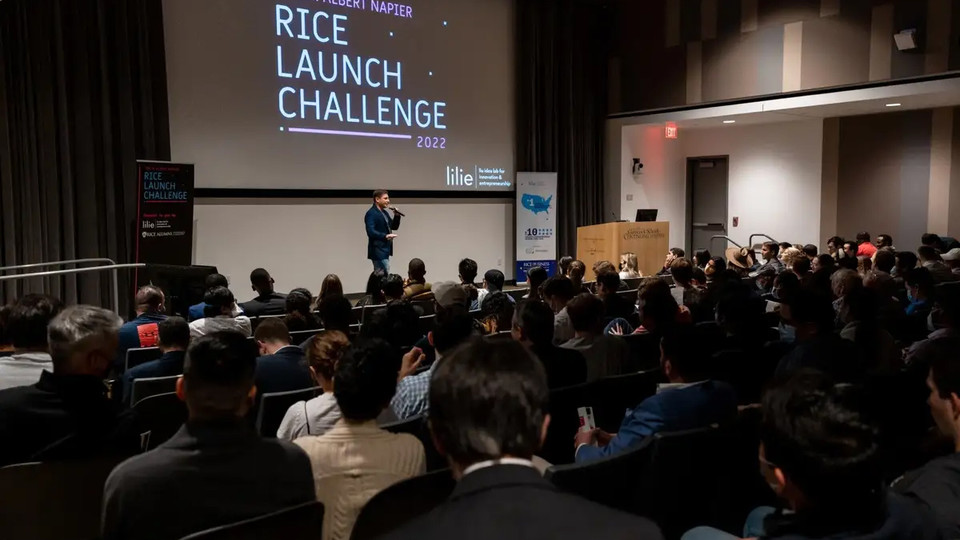
Rice University experts available to comment on forthcoming U.S. Supreme Court decisions

As the U.S. Supreme Court prepares to make decisions on cases involving affirmative action, student loan relief and more, Rice University experts are available for comment.
With a ruling on affirmative action expected soon, Connie Porter, senior associate dean for the Rice Business Office for Diversity, Equity and Inclusion and associate clinical professor of marketing at Rice’s Jones Graduate School of Business, is available to speak to the media about the importance of diversity initiatives in higher education.

“A Supreme Court ban on affirmative action would create significant challenges for higher ed leaders who strive to create and sustain a diverse campus community,” she said. “Higher ed leaders will need to remain courageously and creatively resolute in their pursuit to leverage diversity as a source of innovation, transformation and advantage – not only for their institutions but also for the local and global communities to which their faculty, staff, students and alumni are connected personally and professionally. Following the law of the land is essential, but so is having an unwavering commitment to the challenging work that remains to be done. The most effective leaders know how to adapt to changing circumstances to achieve important goals.”
Three Rice economists can discuss the forthcoming decision on student loan relief.
John Diamond is the director of the Baker Institute for Public Policy’s Center for Public Finance, the Edward A. and Hermena Hancock Kelly Fellow in Public Finance and an adjunct professor of economics.
“Allowing the Biden student loan debt forgiveness program to go forward would increase the debt by $600 billion dollars, increase inflation and benefit the top 60 percent of the income distribution much more than the bottom 30 percent,” he said. “It's a poorly targeted and conceived policy.””
Zach Bethune, an associate professor of economics in Rice’s School of Social Sciences, specializes in macroeconomics and finance. He said that student loans are a sizable source of indebtedness in U.S. households, particularly among young adults.
“There are $1.6 trillion student loans outstanding, over half owed by borrowers under the age of 40,” he said. “The Federal Reserve Bank of New York estimated the White House’s plan would cancel $441 billion in federal student loans – about 31% of the total outstanding federal student loan balance and 28% of all student loans. Given the plan’s income caps, student debt cancellation would disproportionately benefit lower- to middle-income households with student loans.”
However, he noted that student loan borrowers are much less likely to be lower income in the first place, so the plan overall would predominantly affect middle to middle-high income/wealth households. In terms of macroeconomic consequences, Bethune said a negative ruling by the court would put a damper on household spending, as higher levels of debt tend to reduce aggregate demand. On the other hand, he said a positive ruling would likely increase demand as well as inflationary pressures in the short run.
“The $441 billion relief package is approximately 36% of the current federal deficit, so the plan would represent a large, unbacked fiscal transfer,” he said. “This would have immediate effects on the market’s anticipation of future interest rate increases by the Fed given new inflationary pressures.”
James DeNicco, senior lecturer and director of the Principles of Economics Program in Rice’s School of Social Sciences, said upholding the loan forgiveness raises questions of fairness.
“There are going to be tens of millions of people who either saved for college, took out loans and already repaid them or decided to forgo college altogether because of the costs,” he said. “These individuals will now have to help foot the bill for others who made the conscious choice to take out student loans to earn a college degree and who in many cases are going to have higher earning potential throughout their lifetimes.”
He also noted that moving forward with the plan will exacerbate already unsustainable debts and deficits and potentially create a moral hazard that leads to higher education costs and more cumbersome student loan debt in the future.
“How will this change peoples’ behavior going forward? Are people now going to be more willing to take on cumbersome debt in the future to go to college thinking they will eventually receive government loan forgiveness?” he said. “Will universities try to take advantage of this by raising tuition and making a college education even more expensive?”
Paul Brace, the Clarence L. Carter Professor Emeritus in Rice’s Department of Political Science, is an expert on judicial decision making. He can discuss forthcoming decisions on student loans, affirmative action, gay rights and more.
To schedule an interview with one of these experts, contact Amy McCaig, senior media relations specialist at Rice, at 713-348-6777 or Avery Ruxer Franklin, media relations specialist, at 713-348-6327.
You May Also Like

Five student-founded startups have been named finalists for Rice University's prestigious pitch competition, hosted by Rice University’s Liu Idea Lab for Innovation and Entrepreneurship later this month. The teams will compete for a share of $100,000 in equity-free funding at the H. Albert Napier Rice Launch Challenge (NRLC).

